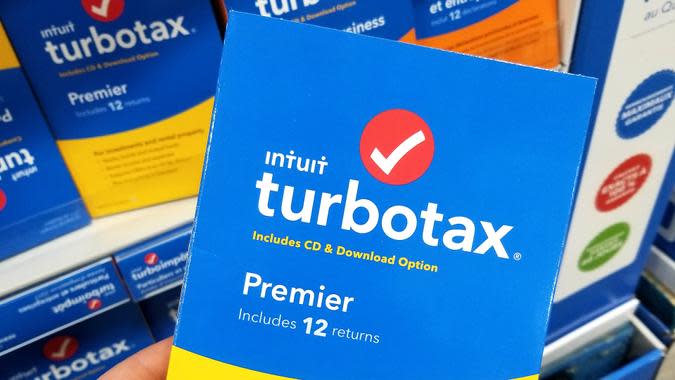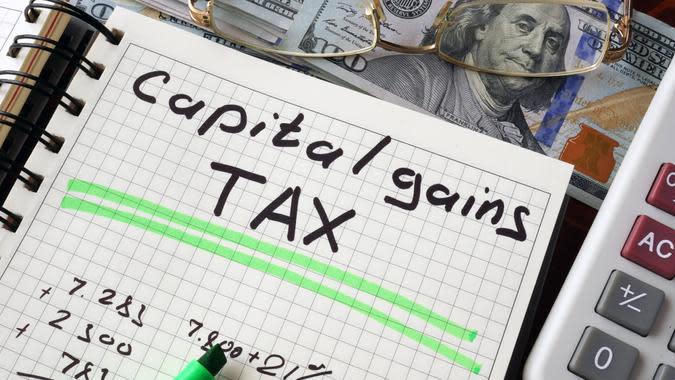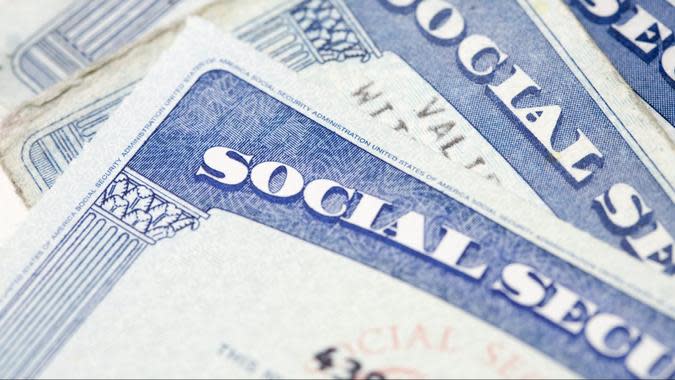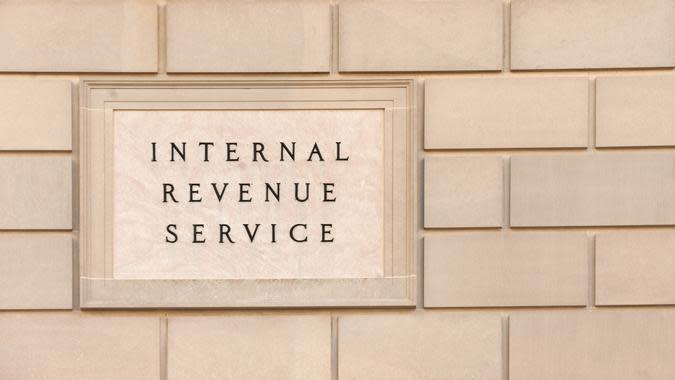11 Ugly Truths About Taxes

Once again, tax season is upon us. And for most taxpayers, the deadline to submit 2022 tax returns is right around the corner on Tuesday, April 18. But this year, your situation might be different as you file your taxes.
Costco's Best Deals? Employee Reveals 10 Standout Buys for Your Money
Related: 3 Ways Smart People Save Money When Filing Their Taxes
Over the last few years, many things have changed due to the worldwide pandemic, including those that affect tax situations. Many people began working from home while still employed, while others completely left their jobs to pursue self-employment opportunities. Still, others took the opportunity to pick up a side gig and earn extra income while remaining full-time employees. Other people took early retirement and began relying on their nest eggs sooner than they'd planned. Some people decided to try investing. And some people left the U.S. altogether and moved to a foreign country.
Whatever changes you might have experienced, it's important to know these ugly truths about taxes. What you learn might shed some light on why your tax return might not yield you the results you're expecting this year and help you make better tax-related decisions going forward.

You Can't Claim the Home Office Deduction When Working From Home as an Employee
"Employees who were asked to work from home in 2021 (and even now) are not entitled to deduct a home office under the current tax law," said Wendy Barlin, certified public accountant and owner of About Profit. "So all their home utilities, supplies, internet and phone are not deductible. This comes as a hard blow as many employees assumed they would benefit from working from home but actually in some cases, it is more expensive for them with increased utility bills. I do recommend for 2022, asking employers for an allowance to cover home office expenses."
Take Our Poll: What Are Your Financial Priorities in 2023?

Not Paying Quarterly Taxes as a Gig Worker Can Cost You Dearly
"If you do gig work or have another 1099 source, you are a small business and need to pay estimated taxes," said Jay Zigmont, Ph.D., CFP(r) and founder of Childfree Wealth. "In the eyes of the IRS, any 1099 work is a small business, and you need to make payments on your taxes across the year (approximately quarterly). If you don't, you may not only have a large bill at the end of the year but you may also have to pay interest and fees."

Gig Work or Owning a Small Side Business Can Equal High Taxes
"The hardest one is always the gig workers who get 1099s or people start a small side business," Barlin said. "Yes, they can deduct all sorts of expenses against this income such as their home office, their gas and meals and office supplies and telephone, but even after all expenses are deducted, they pay federal and state income tax on their net income as well as approximately 15% payroll taxes, which includes Social Security and Medicare. This comes as a huge surprise to most gig workers or small business owners.
"The total tax bill here could be as high as 50%! If you have other income or your spouse has other income that pushed you into a 20% or 25% federal tax bracket, plus state tax (10% in some states) plus the approximately 15% payroll tax, you can see how quickly the taxes add up. Some taxpayers are already in a 35% tax bracket and then add on gig work and even if state taxes are lower, once you add on payroll taxes, boom, you are at 50% again!"

Tax Laws Are Least Favorable to Salaried Employees
"The worst type of income you can earn from a tax perspective is a salary," said tax attorney Sharon Winsmith. "This is because salaries are taxed at the highest rates and you cannot deduct anything against your salary. On the other hand, income from businesses is taxed at a more favorable rate, assuming everything is structured properly, and you can reduce your taxable income by deductions attributable to running your business."

Moving to a Foreign Country Won't Excuse You From Filing a US Tax Return
"The United States is one of only two countries in the world that requires its citizens to file a tax return, regardless of where they live," said Kari Brummond, a tax preparer with TaxCure. "Even if you live in a foreign country for the rest of your life, the IRS requires you to file a tax return. The only other country with this rule is Eritrea. This rule isn't going anywhere. It's been in existence since the Civil War.
"You can renounce your citizenship to get around that rule, but the United States won't let you renounce unless you've been compliant with tax laws for the last five years."

Tax Preparation Software Isn't Always the Best Choice
"As much as TurboTax would have you believe, doing your taxes as a small business owner or freelancer isn't as easy as clicking big, pretty buttons," said Sean DiMercurio, CPA and partner and founder of DiMercurio Advisors.
"It certainly can be for people who just earn a regular salary, but certainly not for more complex tax situations. The reality is TurboTax and other software can't figure out all the nuances of your business with some canned questions, let alone give you advice to help you save in the future. All tax software does is plug in the numbers for you. You're responsible for knowing what those numbers mean and whether they're expenses, loans or something else. To help you understand what's actually on your return, you should have a reputable CPA or other experienced tax preparer working by your side."

You Might Pay Capital Gains Tax on Your Mutual Fund
According to Matt Nadeau, wealth advisor at Piershale Financial Group, you may owe this tax even if you didn't sell the mutual fund and even if you lost money in the fund.
"If the mutual fund's managers sell securities in the mutual fund for a profit, the IRS typically considers your share of that profit a capital gain, even if you have not sold the mutual fund," Nadeau said. "The mutual funds will usually distribute these capital gains to once a year and these capital gains are taxable income, even if you reinvested the money.
"Capital gains are not tied to current market or fund-level performance, they are determined by the sale of securities within a fund. Even when markets are down, the sale of a security can still generate a gain, for example, if the gain had appreciated over many years."

If Your Income Is Too High, You May Pay Tax on Your Social Security
"How much tax you pay on your social security is based on something called, 'provisional income,'" Nadeau said. "This is your adjusted gross income (AGI) + 50% of your social security benefits + tax-exempt interest sources.
"If your income gets too high, causing this provisional income to rise, you could begin to trigger higher taxes on your social security. For example, if you are married filing a joint return and this provisional income is less than $32,000 -- you have no tax on your social security. However, if it climbs above $44,000, up to 85% of your social security may be taxable."

Extensions Give You More Time To File But Not More Time To Pay
"Many people will file extensions because they can't pay a balance due, and some just don't file at all," said Rob Burnette, CEO, financial advisor and professional tax preparer at Outlook Financial Center. "Timely filing of the return or an extension by the due date (this year it is April 18) is a must. Failing to timely file your return leads to penalties and interest added to your tax bill when you finally pay it. If you can at least make a partial payment with your return or an extension, you should do so to lower late payment charges and interest. To avoid a late payment penalty, pay at least 90% of your tax liability by the due date. A late payment penalty can be as much as 25% of the amount due.
"You can ask the IRS for more time to pay. For amounts less than $50,000, you can go to the IRS website and file the request. The IRS Online Payment Agreement application can get you another 60 to 120 days to pay your taxes in-full or a payment plan that will establish a monthly payment plan for up to 36-months. Interest and penalties will accrue on the unpaid account. For longer extension requests, Form 9465 can establish an Installment Agreement for up to 72-months to pay and may require Form 433-F, Collection Information Statement, to determine the monthly payment amount."

Many Cryptocurrency Transactions Need To Be Reported
"Cryptocurrency transactions should be reported on Form 8949, Sales and Other Dispositions of Capital Assets," Burnette said. "There are more than 7,000 types of virtual currencies. In 2017, Coinbase had 5.9 million customers and provided $6 billion worth of Bitcoin exchanges. Less than 900 taxpayers filed Form 8949 to report the transactions. As a result, the IRS launched Operation Hidden Treasure in 2021 with a team of criminal investigators to focus on non-compliance and non-reporting of virtual currency transactions. The IRS is urging taxpayers to file amended returns to fix the problem before they find it."

The IRS Has a Focus List Each Year for Targeted Audits
"The Department of the Treasury Inspector General for Tax Administration releases an Annual Audit Plan each year to the public on treasury.gov/tigta/auditplans," Burnette said. "The vast majority of the compliance and enforcement targets aren't looking for the average taxpayer. Some of the audit targets may surprise you."
More From GOBankingRates
This article originally appeared on GOBankingRates.com: 11 Ugly Truths About Taxes

 Yahoo Movies
Yahoo Movies 
